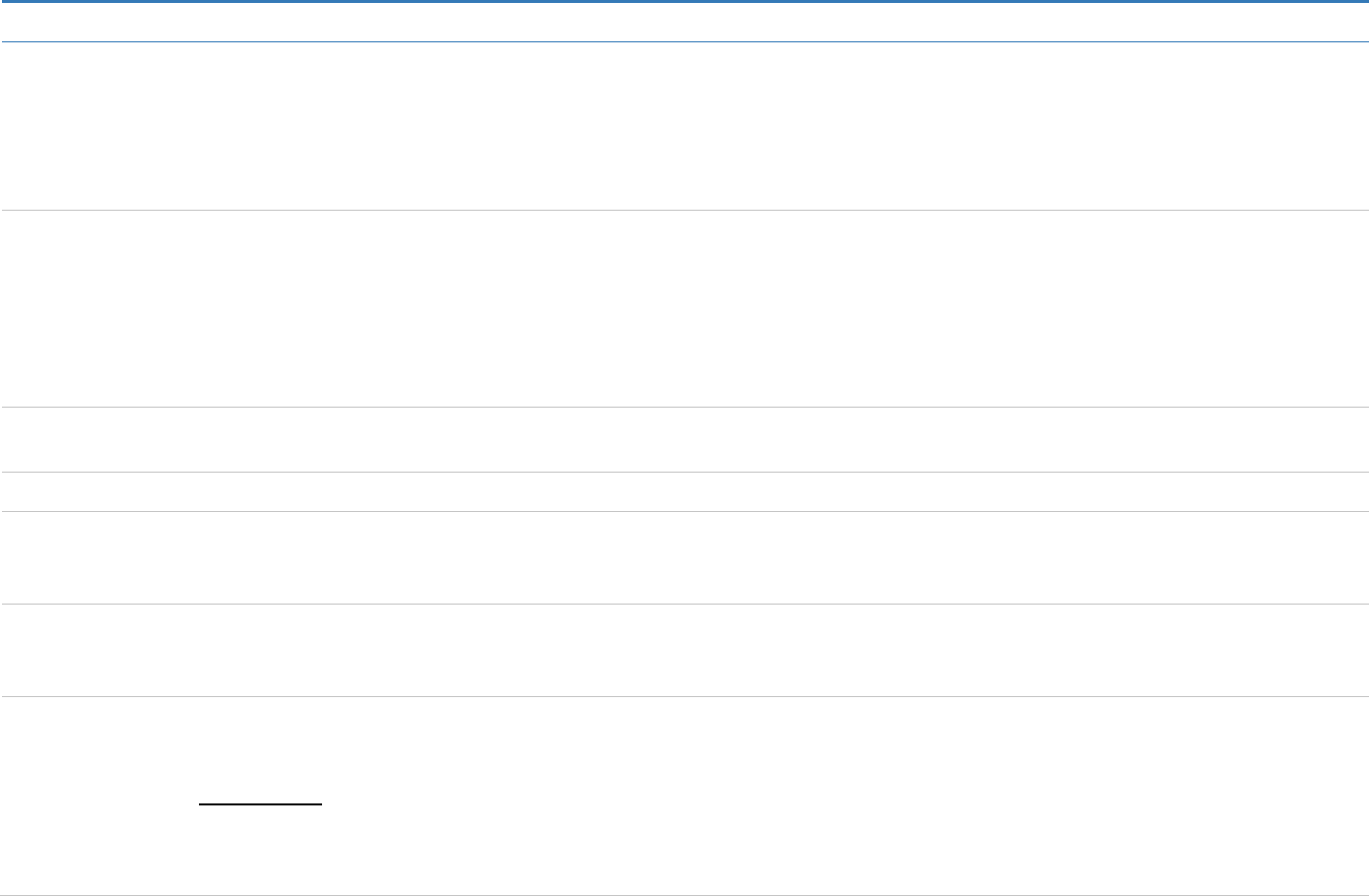
FSB Roadmap for Addressing Financial Risks
from Climate Change
Progress report
2023 progress report
13 July 2023

The Financial Stability Board (FSB) coordinates at the international level the work of national
financial authorities and international standard-setting bodies in order to develop and promote
the implementation of effective regulatory, supervisory and other financial sector policies. Its
mandate is set out in the FSB Charter, which governs the policymaking and related activities of
the FSB. These activities, including any decisions reached in their context, shall not be binding
or give rise to any legal rights or obligations.
Contact the Financial Stability Board
Sign up for e-mail alerts: www.fsb.org/emailalert
Follow the FSB on Twitter: @FinStbBoard
E-mail the FSB at: fsb@fsb.org
Copyright © 2023 Financial Stability Board. Please refer to the terms and conditions
iii
Table of Contents
Executive summary ............................................................................................................... 5
1. Introduction ..................................................................................................................... 7
2. Progress made across all four blocks of the Roadmap ................................................... 7
2.1. Block 1 – Disclosures ........................................................................................... 7
2.2. Block 2 – Data .................................................................................................... 12
2.3. Block 3 – Vulnerabilities analysis ....................................................................... 13
2.4. Block 4 - Regulatory and supervisory practices and tools .................................. 15
3. Engagement with external stakeholders ........................................................................ 17
4. Conclusion and next steps on the roadmap .................................................................. 18
Annex: Key actions and deliverables for the Roadmap ........................................................ 19
iv

5
Executive summary
In July 2021, the Financial Stability Board (FSB) published a comprehensive Roadmap for
Addressing Climate-related Financial Risks, which was endorsed by the G20. The Roadmap
responded to the need for coordinated action between standard-setting bodies (SSBs) and other
international organisations. Two years on, progress has been steady across all four blocks of
the Roadmap and some areas have been identified for further attention:
■ Firm-level disclosures: A substantial achievement has been the publication on 26
June of the International Sustainability Standards Board (ISSB)’s final standards, IFRS
S1 on general sustainability-related disclosures and IFRS S2 on climate-related
disclosures. The FSB welcomes the publication of the final standards, which will serve
as a global framework for sustainability disclosures and, when implemented, will enable
disclosures by different companies around the world to be made on a common basis.
A key priority is now the swift consideration by the International Organization of
Securities Commissions (IOSCO) of endorsement of the standards for authorities to
adopt, apply or otherwise utilise in a robust and timely manner, reflecting each
jurisdiction’s circumstances. The FSB will work with the ISSB, IOSCO and other
relevant bodies to promote the timely and wide use of the standards. The FSB also
asks the ISSB to take over from the Task Force on Climate-related Financial
Disclosures (TCFD) the monitoring of the adoption of climate-related disclosures by
firms. Interoperability of the ISSB standards with jurisdictional frameworks is necessary
in order to achieve global comparability of climate-related disclosures. In this context,
the FSB strongly welcomes initiatives that aim to promote interoperability between
those disclosure frameworks, such as the ISSB’s Jurisdictional Working Group, and
welcomes bilateral discussions on interoperability between the ISSB and individual
jurisdictions in order to avoid firms’ double reporting. Finally, encouraging progress has
been made on the development of a global assurance framework for sustainability-
related corporate reporting to drive reliability of the disclosures.
■ Data: Work in 2022-2023 has continued to focus on improving the availability, quality
and cross-border comparability of climate data. An important goal is to develop global
repositories that provide open access to data and would facilitate the use of metrics that
reflect climate-related risks consistently and reliably across sectors and jurisdictions.
There is a continuing need for enhancing climate data and improving its accuracy,
consistency and quality, in order to support climate risk assessment and scenario
analysis exercises. Further work is needed to develop metrics that measure climate-
related risks in a forward-looking manner.
■ Vulnerabilities analysis: Progress is being made on development of conceptual
frameworks and metrics for monitoring climate-related vulnerabilities. Further work is
needed to embed climate scenarios into monitoring of financial vulnerabilities and to
develop understanding of the cross-border and cross-sectoral transmission of climate
shocks in order to obtain financial stability insights.
■ Regulatory and supervisory practices and tools: Initiatives on embedding climate-
related risk into risk management and prudential frameworks are ongoing and capacity
building remains an important focus. As work on regulatory and supervisory approaches
6
to climate-related risks is evolving, there is a growing interest in the role of transition
plans of financial institutions and non-financial corporates not only in enabling an orderly
transition, but also as a source of information for financial authorities to assess micro-
and macroprudential risks. The FSB is setting up a Transition Plans Working Group that
will, as an initial task, develop a conceptual understanding on the relevance of transition
plans and planning by financial and non-financial firms for financial stability. With many
initiatives having started or being considered, it will be important to ensure close
coordination among the FSB, SSBs and other relevant bodies.
Across all blocks of the Roadmap, financial institutions’ progress in addressing climate-related
financial risks relies on the non-financial corporate sector making similar progress, including in
the areas of firm-level disclosures, addressing data gaps and transition plans.
7
1. Introduction
In July 2021, the Financial Stability Board (FSB) published a comprehensive Roadmap to
address climate-related financial risks. The Roadmap was endorsed by G20 Finance Ministers
and Central Bank Governors and subsequently by G20 Leaders at the Rome Summit. It
addressed the need for coordinated action with the large and growing number of international
initiatives underway by outlining key actions to be taken by SSBs and other international
organisations over a multi-year period in four key policy areas: firm-level disclosures, data,
vulnerabilities analysis, and regulatory and supervisory practices and tools.
Climate-related events are becoming ever more common, and this is leading to a growing focus
on potential risks climate change could pose to financial stability. A manifestation of physical
risks as well as a disorderly transition to a low-carbon economy could have destabilising effects
on the financial system, such as a rise in risk premia and falling asset prices. Climate-related
risks may also be amplified by the financial system, across borders and across sectors. The
increased frequency and intensity of extreme weather and climate-related events, and the
intense debate about current and future energy policies in many jurisdictions, highlight that this
is not just a long-term issue or tail event. It also emphasises the importance of continued
progress to embed effective risk management practices and strengthen financial system
resilience to the risks posed by climate change.
The G20 has asked the FSB to deliver annual progress reports on the Roadmap. The objectives
of this second annual progress report are to:
■ Take stock of further progress made in the year since the first annual Roadmap
progress report was published in July 2022
■ Identify and address areas requiring further attention
■ Strengthen coordination across the different international initiatives
■ Provide updates where needed to the detailed Roadmap actions set out in the Annex
This progress report has been prepared in consultation with SSBs and other relevant
international bodies. The report also serves as input to broader international policy
considerations, such as at the G20, G7 and UN, as well as to the work under the G20 Sustainable
Finance Working Group (SFWG) roadmap on sustainable finance.
2. Progress made across all four blocks of the Roadmap
2.1. Block 1 – Disclosures
Goal: Achieve globally consistent, comparable, and decision-useful public disclosures by firms
of their climate-related financial risks.

8
2.1.1. Progress made on firm-level disclosures
Important progress has been made over the last year in international and jurisdictional initiatives
to strengthen the comparability, consistency and decision-usefulness of climate-related financial
disclosures and to develop assurance standards over sustainability-related information.
The publication on 26 June 2023 of the International Sustainability Standards Board (ISSB)’s
finalised Standards, IFRS S1 on general sustainability-related disclosures
1
and IFRS S2 on
climate-related disclosures
2
, is a major achievement. Since the publication in March 2022 of its
two Exposure Draft standards for consultation, the ISSB has conducted an extensive
deliberation process in response to the feedback received. IFRS S2 builds on the
recommendations of the FSB’s Task Force on Climate-related Financial Disclosures (TCFD) and
the work of other sustainability bodies. To be compliant with this standard, an entity would need
to disclose material information about its exposure to climate-related risks and opportunities.
Application of this standard (IFRS S2) would require an entity to centre its disclosures on the
consideration of the governance, strategy and risk management of its business, and the metrics
and targets it uses to measure, monitor, and manage its climate-related risks and opportunities.
Under the new standard, entities would disclose information relevant to various cross-industry
metric categories, such as GHG emissions (scopes 1, 2 and 3), physical risks, transition risks,
climate-related opportunities, and capital deployment. Entities would also disclose information
about any climate-related transition plan they have. The ISSB is supporting jurisdictions and
reporting entities in their initial application of IFRS S1 and S2 by introducing a set of transitional
reliefs which will, amongst other things, permit entities in the first year of application to (i) not
provide comparative information, (ii) not disclose scope 3 GHG emissions, and (iii) limit their
reporting to climate-related information.
The FSB progress report on climate-related disclosures
3
published in October 2022 provided an
update on jurisdictions’ actions relating to disclosures. Since then, the European Union
completed public consultations on sustainability reporting standards
4
and is expected to adopt
its final standards shortly. In March 2022, the US Securities and Exchange Commission also
proposed rule amendments that would require a registrant (both domestic and foreign private
issuers) to include certain climate-related information in its registration statements and periodic
reports.
5
Interoperability between the ISSB’s global framework for climate-related disclosures and
national and regional jurisdictions’ specific requirements is necessary to achieve global
comparability of climate-related disclosures and has been a continued area of focus. The ISSB’s
Jurisdictional Working Group established a dialogue to promote interoperability between the
ISSB’s work and that of ongoing jurisdictional initiatives on sustainability and climate disclosures.
Membership includes regulators from China, the European Union, Japan, the UK and the US.
As an example of progress in this area, the ISSB announced with the European Commission
and EFRAG last December that they are working toward a shared objective to maximise
1
IFRS (2023), S1 General Requirements for Disclosure of Sustainability-related Financial Information, June
2
IFRS (2023), S2 Climate-related Disclosures, June
3
FSB (2022), Progress report on promoting climate-related disclosures, October.
4
First Set of draft European Sustainability Reporting Standards (ESRS) - EFRAG
5
Available here.

9
interoperability of their standards and aligning on key climate disclosures. This included detailed
analysis of terminology and requirements within the standards, with an expectation to share the
results after the finalisation of both sets of standards.
At a sectoral level, the Basel Committee on Banking Supervision (BCBS) is targeting the
issuance of a consultation document on a proposed Pillar 3 disclosure framework for climate-
related financial risks by the end of 2023, which seeks to build on and complement the ISSB’s
disclosure standards with a set of bank-specific disclosure requirements. The International
Association of Insurance Supervisors (IAIS) has set up a Climate Risk Disclosure Workstream,
with a focus on reviewing IAIS standards related to disclosures and supervisory reporting, to
ensure that they adequately cover climate-related risks, as well as monitoring developments in
disclosure frameworks for climate-related risks, both at international and national levels.
The Organisation for Economic Co-operation and Development (OECD) also began its review
of the G20/OECD Principles of Corporate Governance in 2021 to reflect developments in
governance and capital markets. The revised Principles were adopted by OECD Ministers in
June 2023. They will be submitted to G20 for endorsement. The revised Principles include
recommendations on sustainability disclosures as well as the role of Boards and the rights and
interests of shareholders and stakeholders on sustainability matters.
During the period until the implementation of the ISSB standards across jurisdictions begins,
there is a continuing need to maintain momentum by monitoring and reporting on progress in
firms’ climate disclosures. The FSB therefore requested in October 2022 that the TCFD continue
its work to promote and monitor progress in firms’ take-up of its recommendations, and publish
in September 2023 a further status report on firms’ disclosures that, by being TCFD-aligned, will
be using a common basis with the new global framework. The issuance of the finalised ISSB
standards marks a significant new stage in the disclosure process. The publication of this year’s
progress report by the TCFD will be its final task. The TCFD will be disbanded, and the FSB will
ask the ISSB to deliver a report in 2024 on progress in firms’ disclosures, liaising with IOSCO as
appropriate, including early take-up of the ISSB standard for climate-related disclosures and
progress in achieving interoperability.
Endorsement of sustainability disclosure standards
IOSCO is providing a key role in reviewing the ISSB’s standards and considering them for
endorsement for authorities to adopt, apply or otherwise utilise, reflecting each jurisdiction’s
circumstances. In July 2022, the IOSCO Board discussed the ISSB’s proposals in detail and re-
confirmed the criteria it would use to decide whether to endorse the final ISSB standards, with a
view to completing its review in 2023. IOSCO will also review the International Auditing and
Assurance Standards Board (IAASB) and International Ethics Standards Board for Accountants
(IESBA) standards and has set out its expectations that both disclosure and assurance
standards should be ready for use by corporates for their end-2024 accounts.
6
In March 2023,
IOSCO published key considerations to promote an effective global assurance framework for
6
IOSCO (2022), Media release, November.

10
sustainability-related corporate reporting.
7
These include, among others, four features of future
standards: (1) profession-agnostic, (2) framework-neutral, (3) timely, and (4) fully respecting the
due process and public interest framework.
Assurance over sustainability-related reporting
Work on sustainability-related assurance, ethics and independence standard-setting has gained
much traction since the previous Roadmap update in July 2022. The IAASB and IESBA have
ramped up their efforts to develop standards to ensure a high-quality framework for assurance
over sustainability-related disclosures. The IAASB is developing a new profession-agnostic
overarching standard for assurance on sustainability-related information, the International
Standard on Sustainability Assurance (ISSA) 5000, General Requirements for Sustainability
Assurance Engagements, and published a project proposal
8
in September 2022. The IAASB
approved its Exposure Draft on 28 June for consultation, with a view to finalising the standard in
the second half of 2024.
In parallel, the IESBA also committed to developing fit-for-purpose, globally applicable ethics
and independence standards to support sustainability-related assurance and reporting. In
December 2022, the IESBA approved its project proposal: (i) profession-agnostic ethics and
independence standards for use by all sustainability assurance practitioners; and (ii) specific
ethics provisions relevant to sustainability reporting for use by accounting professionals. The
IESBA aims to issue an Exposure Draft by December 2023, with a view to finalising the new
standard by late 2024.
2.1.2. Key areas for future work
Notwithstanding the substantial progress made in the past year, the next steps will be crucial in
achieving globally consistent, comparable, and decision-useful disclosures on climate-related
financial risks and opportunities.
Implementation of the ISSB standards
Now that the ISSB standards have been finalised, work to promote the timely and wide use of
the standards by jurisdictions is important.
IOSCO’s work to consider endorsement will be an important immediate step. If IOSCO endorses
the standards, jurisdictions should take timely action to consider how they would adopt, apply,
or otherwise utilise the standards. IOSCO will seek to assist jurisdictions through a broad
capacity building programme, working closely with the ISSB and other relevant bodies. The ISSB
is also envisaging publishing adoption guidance to facilitate the implementation globally. The
FSB will closely work with these bodies to promote its timely and wide adoption in line with
individual circumstances of jurisdictions and will continue to report annually to the G20 on
7
IOSCO (2023), IOSCO report on International Work to Develop a Global Assurance Framework for Sustainability-related
Corporate Reporting, March.
8
IAASB (2022), Project proposal for the development of an overarching standard for assurance on sustainability reporting.

11
progress in implementation by jurisdictions and firms of disclosures and reporting in line with
international standards, including through a further report in October 2023.
In addition, capacity building will be important to facilitate implementation of the ISSB standards.
The ISSB has a global capacity building programme aimed at supporting high quality adoption
by jurisdictions and implementation by firms, and will be working with IOSCO, development
banks and jurisdictions. IOSCO will also continue to engage with the standard setters and other
stakeholders and support capacity building across the entire sustainability reporting ecosystem.
The World Bank, working closely with IOSCO and ISSB, will provide capacity building support
for emerging market and developing economy (EMDE) regulatory authorities in implementing
and rolling out the ISSB standards.
Continued efforts on interoperability
Work to achieve the interoperability of disclosure frameworks for climate-related financial risks
should remain a priority. The ISSB will continue to work with jurisdictions and other reporting
organisations such as the Global Reporting Initiative (GRI) to maximise interoperability of its
standards with jurisdictional requirements. This will be essential to help avoid unnecessary
fragmentation and unnecessary costs for preparers of disclosures. Reducing existing conceptual
and actual differences between disclosure frameworks can also help promote the comparability
of disclosures across jurisdictions. The FSB welcomes bilateral discussions on interoperability
between the ISSB and individual jurisdictions in order to avoid any risk of firms’ double reporting.
Similarly, consistency between climate-alignment metrics and subsequent disclosures on
climate and sustainability is an important issue and can assist with climate-related financial
disclosures. The International Monetary Fund (IMF), jointly with the World Bank Group, OECD,
and BIS, will issue a staff-level technical report on the operationalisation of G20 Sustainable
Finance Working Group (SFWG) Principles for Climate Alignment Approaches
9
, promoting
consistency and interoperability across alignment approaches, including disclosures, climate
metrics, as well as forward-looking climate metrics and transition plan characteristics.
Finalisation of assurance and ethics standards over sustainability-related reporting
The IAASB’s planned sustainability assurance standard will form an integrated package with
IESBA’s international ethics and independence standards for sustainability assurance
practitioners. Both are due to be finalised by end-2024. The emphasis on timely completion aims
to minimise the risk of fragmentation and proliferation of standards and could enhance the
confidence of intended users of general-purpose external reporting of sustainability-related
information.
Looking ahead, further work on sustainability assurance is expected to be linked to the evolving
maturities of reporting standards, entity’s systems and reporting processes, and the information
needs of intended users, as well as emerging issues that drive public interest priorities. IAASB
and IESBA seek to continue coordinating with other relevant standard-setting bodies, as well as
international and jurisdictional bodies with responsibility for reporting or assurance requirements.
9
The Principles are described in Focus Area 1, Action 1 of the G20 Sustainable Finance Roadmap

12
Regulatory monitoring and enforcement of profession-agnostic assurance and ethics standards
Recognising the reality that sustainability assurance is already performed by diverse assurance
providers within and outside of the accountancy profession around the globe, and in response
to a call from IOSCO, the IAASB’s and IESBA’s future sustainability-related standards will be
profession-agnostic. Particularly where jurisdictions move from voluntary to mandatory reporting
and assurance it may place additional responsibilities on regulators and oversight bodies. While
regulatory oversight regimes for auditors are well established in most jurisdictions, this is not the
case for sustainability assurance providers outside the accountancy profession. Accordingly,
there would be merit in further developing supervisory regimes for sustainability assurance
practitioners outside the accountancy profession.
2.2. Block 2 – Data
Goal: Establish a basis of comprehensive, consistent, and comparable data for monitoring
climate-related financial risks globally.
2.2.1. Progress made on data
Work in 2022-2023 has continued to focus on improving the availability, quality and cross-border
comparability of climate data.
The Network for Greening the Financial System (NGFS) in July 2022 published its final report
on identifying and bridging data gaps.
10
It has developed, and continues to enhance, a directory
of data sources for financial sector stakeholders through an internal network of climate-related
data experts working on three topics: (i) data hubs organisations within central banks and
supervision authorities, (ii) set up of national climate data directories/catalogues and (iii)
improving emissions data. Looking ahead, it aims to publish a new version of the NGFS Data
Directory referencing data sources and metrics, which will be updated on a regular basis.
Climate data elements have also become a regular feature of the Global Monitoring Exercise
(GME) conducted by the IAIS, providing a global baseline of climate risk data for the insurance
sector. The outcomes of the analysis from 2022 were published as part of the regular Global
Insurance Market Report (GIMAR) at the end of 2022.
11
The 2023 GME data collection was
launched in March and again includes both qualitative and quantitative data elements related to
climate risk and includes, for the first time, data requests to individual insurers. Again, outcomes
of the analysis will be published as part of the regular GIMAR at the end of this year.
At a macro-level, the G20 Data Gap Initiative (DGI) workplan led by the IMF, in close cooperation
with the FSB and the Inter-Agency Group on Economic and Financial Statistics (IAG), was
launched in 2022. It includes seven recommendations to address data gaps relating to climate,
including carbon footprint of foreign direct investment, climate finance, and forward-looking
physical and transition risk indicators. In addition, to support the work on climate-related data
availability, the IMF, in collaboration with relevant stakeholders, is working to ensure the addition
10
NGFS (2022), Final report on bridging data gaps, July.
11
IAIS (2022), Global Insurance Market Report 2022, December
13
of the relevant environmental classes to the classification systems of the international statistical
standards within the ongoing update of the System of National Accounts and Balance of
Payments and International Investment Position Manual.
An important goal is to develop global repositories that provide open access to data. Such data
repositories would facilitate the development and use of metrics that reflect climate-related risks
consistently and reliably across sectors and jurisdictions. Public-private sector initiatives, such
as the Net-Zero Data Public Utility (NZDPU) will help to build the climate data landscape. The
Climate Data Steering Committee (CDSC), which is responsible for developing the NZDPU, aims
to build a unified, global climate data utility, with the objective to aggregate, help standardise
and make publicly available critical climate-related data from financial institutions and companies
with respect to their net-zero transitions. It includes representatives from international
organisations including the United Nations, the OECD, IMF, IOSCO, and the FSB. Other
initiatives complement this data by providing access to data on risk exposures, such as the
Global Resilience Index Initiative (GRII).
Finally, the FSB has made further progress on developing, for its own internal purposes, a
framework, data and metrics for monitoring climate-related risks to financial stability at the global
level. This work focuses on aggregating relevant data across its member jurisdictions and is
highlighting various data gaps that need to be filled and further work required to advance the
monitoring of climate-related financial stability vulnerabilities, including to develop and enhance
forward-looking metrics.
2.2.2. Key areas for future work
There is continued need for enhancing climate data and improving its accuracy, consistency and
quality, in order to support climate risk assessment and scenario analysis exercises.
Towards Forward-looking Metrics
An important focus of future work continues to be to support the understanding of the necessary
forward-looking metrics and identify data needs for developing forward-looking metrics for the
purpose of monitoring climate-related risks.
The ongoing initiatives mentioned in 2.2.1 are laying the foundation for filling the climate data
needs that have been highlighted by different stakeholders. These issues may be addressed by
establishing specific use cases of climate data (e.g., financial stability analysis, supervision of
financial institutions’ exposures, flow of finance to transition vulnerable sectors) and then working
backwards to identify potential data gaps that are preventing stakeholders from calculating
needed forward-looking climate metrics. While ongoing initiatives have focused on identifying
climate indicators for non-financial corporates, there is also a need to develop relevant data for
understanding how other sectors (e.g., the public sector and household sector) could be affected
by climate risks. Another area for attention should be assisting EMDEs with filling data gaps.
2.3. Block 3 – Vulnerabilities analysis
Goal: To more systematically assess and better understand climate-related financial
vulnerabilities and potential financial stability impacts.

14
2.3.1. Progress made on vulnerabilities analysis
There has been good progress on the three strands identified in last year’s report – ongoing
monitoring, development of conceptual frameworks, and further development of scenario
analysis.
Several initiatives are aimed at providing support to countries on the monitoring of climate
vulnerabilities. The OECD is assessing the potential vulnerabilities on aspects of climate
transition, and net zero transition plans, related to risks in bank and non-bank finance. It is also
preparing a report on the assessment of climate transition metrics to support governments in
monitoring climate-related financial and transition risks. The World Bank published Country
Climate and Development Reports that include a high-level assessment of climate risks and
opportunities in the financial sector and, together with the IMF, produced technical notes as part
of the Financial Sector Assessment Programs, which include the identification of climate
vulnerabilities through the assessment of exposures to natural disasters. The World Bank also
provided standalone technical assistance on climate risk analysis to central banks and regulators
in EMDEs and published jointly with the NGFS a technical note on climate risk assessments in
EMDEs.
12
The FSB has continued its work on establishing the analytical basis for monitoring vulnerabilities
to global financial stability relating to climate. This work has focused on drawing financial stability
insights using two approaches: (i) computing metrics using a snapshot of current exposures in
the financial system to assess physical and transition risks, and (ii) using a forward-looking
approach that draws qualitative insights based on outputs from scenario analysis and other
forward-looking approaches used by its members. The end-objective is to develop a monitoring
template for internal use within the FSB to analyse the evolution of climate vulnerabilities and
potential transmission and amplification channels, based on metrics available at the time. This
will be updated regularly and evolve over time as improved data and tools become available and
will help in identifying data gaps.
Scenario analysis
On scenario analysis, efforts have continued to enhance scenarios and their application for
central banks and supervisors, with the NGFS publishing a 3
rd
vintage of its scenarios in
September 2022.
13
In addition, the NGFS and FSB published a joint report on climate scenario
analysis by jurisdiction in November 2022
14
, providing an overview of scenarios, models, data
and metrics used by FSB and NGFS member authorities in their climate scenario analysis
exercises and attempting to evaluate the implications of climate-change-related developments
for the financial system as depicted in climate scenarios.
The NGFS will continue to enhance its climate macro-financial scenarios and seek to promote
greater usability of its scenarios, by (i) enhancing their sectoral and geographical granularity and
adding more key variables that are needed for analysis and providing detailed technical
12
NGFS and World bank (2022), Physical climate risk assessment: practical lessons for the development of climate scenarios with
extreme weather events from emerging markets and developing economies, September.
13
NGFS (2022), NGFS scenarios for central banks and supervisors, September.
14
FSB and NGFS (2022), Climate Scenario Analysis by Jurisdictions: Initial findings and lessons, November.
15
documentation, (ii) developing additional short-term adverse scenarios for the purpose of stress
testing, and (iii) considering the suitability of its scenarios for financial institutions’ disclosure
purposes, and what changes or guidance might be needed. Regarding short-term scenarios, a
conceptual note is to be published in Q3 2023 and the modelling work will start in Q3 2023.
Moreover, the results of phase 4 of the long-term scenarios will be published in Q4 2023, and
will incorporate two new scenarios, the enhanced version of the physical damage function as
well as more sectoral granularity.
At a sectoral level, initiatives have focused on supporting supervisors in the development of
practices for conducting climate scenario analysis. The BCBS is supporting the development of
banks’ and supervisory practices and assessing the need for supervisory guidance. The IAIS
held in 2022 capacity building workshops on climate scenarios, which supported more than 200
insurance supervisors. It also launched, together with the Financial Stability Institute (FSI), a
new climate scenarios training, which builds on the capacity building provided last year. The IAIS
is also developing an application paper to support the practical application of the relevant
Insurance Core Principles (ICPs) in relation to climate scenario analysis. The application paper
is expected to be published for consultation in Q4 2023 (see also below under 2.4.1.).
2.3.2. Key areas for future work
Moving to regular monitoring of climate-related vulnerabilities in a timely yet flexible manner and
embedding climate scenarios and other forward-looking approaches into vulnerability
assessments, are ambitious but important goals.
Further work is needed to embed forward-looking metrics in vulnerability assessments. As part
of that, work could include further examination of how climate scenarios could be used to draw
financial stability insights, including identifying best practices and ideal metrics that could offer
informative and timely climate vulnerability assessments.
Another example of the use of forward-looking metrics would be to examine the role that firms’
transition plans could play in providing information for monitoring transition and physical risks,
which links with work being undertaken on data and vulnerabilities analysis, and as a tool for
mitigating some of those risks. The forthcoming FSB work on the relevance of transition plans
and planning by financial and non-financial firms for financial stability described in Block 4 below
aims to address this issue.
Conceptual and empirical work on climate vulnerabilities should lend more consideration to the
cross-border and cross-sectoral transmission of climate shocks, in order to obtain financial
stability insights. It may be important to assess whether there are common vulnerabilities across
sectors or jurisdictions (such as, for instance, common exposures to the same set of transition-
sensitive industry sectors) that could add to systemic effects, or cross-border exposures that
could transmit vulnerabilities.
2.4. Block 4 - Regulatory and supervisory practices and tools
Goal: Establish effective and, where useful and appropriate, consistent supervisory and
regulatory approaches and tools to address climate-related risks, both within individual sectors
and at the system-wide level.

16
2.4.1. Progress made on supervisory and regulatory approaches
Initiatives on embedding climate-related risk into risk management and prudential frameworks
are ongoing among the SSBs and NGFS. The IAIS, following the completion of a gap analysis
of its supervisory material to assess how climate risk is already captured, intends to publicly
consult on proposed changes to at least three elements of its ICPs. It will develop supporting
material for various ICPs and topics, likely covering market conduct, financial crime, climate
scenario considerations, valuation, investments, enterprise risk management for solvency
purposes, reporting, public disclosure, macroprudential supervision. On banking regulation, the
BCBS continued to pursue a holistic approach to address climate-related financial risks to the
global banking system across all three pillars of regulation, supervision and disclosure. It has
started this year to assess the materiality of gaps in the existing Basel framework. Building on
this work, it will consider whether regulatory measures to address climate-related financial risks
are needed The BCBS is also monitoring the implementation across member jurisdictions of its
principles for the effective management and supervision of climate-related risks published in
June 2022. It is also reviewing its core principles for effective banking supervision ("Basel Core
Principles") and as part of this will consider how to incorporate climate-related financial risks. On
disclosures, the BCBS seeks to complement the ISSB's initiatives by developing a set of bank-
specific Pillar 3 disclosure requirements, as mentioned in Block 1. Other initiatives on
supervisory and regulatory approaches include the NGFS’s deep dive on the supervision of
climate-related litigation risks, and IOSCO’s work on compliance and voluntary carbon markets,
with a final report on compliance markets and next steps on voluntary carbon markets in Q4
2023. IOSCO is also developing a report on supervisory approaches for asset management and
the oversight of ESG ratings and data product providers, which it aims to finalise by Q4 2023 as
well.
In order to promote consistency in approaches across jurisdictions and financial sectors, the
FSB published its supervisory and regulatory approaches to climate-related risks in October
2022.
15
The report puts forward a system-wide approach for the supervision of climate-related
risks drawing on elements of existing prudential frameworks, including the use of analytical tools
such as climate scenario analysis and stress testing. The report also acknowledges that
microprudential tools alone may not sufficiently address the cross-sectoral, global and systemic
dimensions of climate-related risks, and presents some early thinking on macroprudential
policies for climate risks.
Finally, capacity building remains an important focus, with training platforms and libraries such
as the Climate Training Alliance and the NGFS SKILL being further developed and enriched, or
the World Bank’s support to central banks and regulators on integrating climate risks in
supervisory practices and continued expansion of capacity building work in EMDEs.
15
FSB (2022) Supervisory and regulatory approaches to climate-related risks: Final Report, October.
17
2.4.2. Key areas for future work
Transition planning and transition plans
Work on supervisory and regulatory approaches to climate-related risks includes a growing
attention on transition planning and transition plans of financial institutions and non-financial
corporates. Transition plans are primarily a tool to facilitate an orderly transition. However, they
can also be a source of information for financial authorities to assess micro- and macroprudential
risks and risk management approaches to climate-related financial risks. From a microprudential
perspective they provide information to regulators on firms’ long-term strategic approach and
financial risks. From a macroprudential perspective they can provide long-term, forward-looking
information and data to better monitor progress on the transition and identify and understand the
build-up of systemic risks.
With many initiatives having started or being in the planning phase, it is important to ensure close
coordination among SSBs and other relevant bodies. Work on microprudential aspects is
underway in the NGFS and in sectoral SSBs. The NGFS published a stocktake on the role of
supervisors in requiring or using financial institutions’ transition plans within the supervisory
toolkit and the prudential framework in May 2023 and will continue to advance the discussion on
the relevance of transition plans and planning to micro-prudential authorities’ mandate,
supervisory toolkit and the overall prudential framework.
From a macroprudential perspective, the FSB will prepare a report presenting a conceptual
understanding on the relevance of transition plans and planning by financial and non-financial
firms for financial stability. This will include the role they could play in providing information for
monitoring transition and physical risks (link with Block 3 on vulnerabilities analysis) and as a
tool for mitigating some of those risks. To prepare the report, the FSB is setting up a Transition
Plans Working Group. This analytical work may lead to further consideration on how authorities
could best use transition plans to inform macro-prudential and financial stability perspectives on
climate-related financial risk.
At the sectoral level, the BCBS is conducting complementary work related to banks' transition
planning and use of climate scenario analyses, and will assess the potential need for additional
supervisory guidance in these areas. The IAIS is discussing whether its work should cover
transition planning by insurers, and IOSCO will also consider the role of securities regulators
with respect to transition plan disclosures and how regulators can promote integrity in capital
markets and mitigate greenwashing.
3. Engagement with external stakeholders
Engagement with external stakeholders, including the private sector, is essential to understand
evolving risk management practices, firms’ progress on their transition goals and how
methodologies and analytical tools to measure and analyse climate-related risks can evolve over
time. This engagement takes place through a variety of fora, including public outreach,
conferences, workshops and bilateral contacts.
The FSB’s engagement with the private sector began with the formation of the TCFD in 2015
and has further developed through a wide variety of fora since then. Since 2021, the FSB has
18
asked Glasgow Financial Alliance for Net Zero (GFANZ) to periodically report to the FSB on the
progress of its initiative to support an orderly transition to a net-zero financial system, so that the
FSB can monitor the implications from a financial stability perspective.
4. Conclusion and next steps on the roadmap
This progress report presents a consolidated update on the progress made by the SSBs and
relevant international organisations, across a wide variety of initiatives to assess and address
the financial risks arising from climate change and identifies the key areas that continue to
require attention. There continues to be a need for strong international coordination of actions in
the coming year (and beyond) because of the importance of this issue for the global financial
system. The FSB will continue to publish annual progress reports and submit them to the G20.
The Roadmap will continue to stay flexible over time to be able to respond to the deepening
understanding of climate-related financial risks and to undertake further work, adjust priorities
and timelines, and take action where needed. Meanwhile, understanding of the implications of
other sustainability topics, such as nature-related risks, is also deepening. For instance, the
NGFS has started to develop a conceptual framework on nature-related risks for central banks
and supervisors, the OECD is developing analysis and policy considerations on nature-related
risks and opportunities, and the interaction with climate-related risks, and the World Bank has
started to integrate nature-related risk analysis in their technical assistance. The FSB will
continue to monitor developments and consider whether to include a broader range of
sustainability topics in its financial stability agenda in future years.
The Annex provides an update to the July 2022 detailed Roadmap description of the planned
actions and deliverables across the SSBs and relevant international organisations.
19
Annex: Key actions and deliverables for the Roadmap
Block 1 – Disclosures
Objective
Establish a global standard for disclosures on climate-related financial risks
■ IFRS Foundation to develop, under robust governance and public oversight, consistent, comparable, and reliable global standards for
sustainability-related financial disclosures, which include disclosure standards for climate-related financial risks built from the TCFD
framework and the work of an alliance of sustainability standard setters, involving them and a wider range of stakeholders closely,
including national and regional authorities, to foster global best practice and accelerate convergence. The standards to accommodate
interoperability with jurisdiction-specific disclosure requirements, including those that may extend beyond the standards. Towards that
end, when considering the interoperability of these global standards, the ISSB’s Sustainability Consultative Committee, Jurisdictional
Working Group, and Sustainability Standards Advisory Forum have considered, and should continue to take into account, existing
national and regional requirements in terms of sustainability reporting, as well as ongoing national and regional efforts to develop such
standards. Some jurisdictions’ domestic efforts to adopt disclosure requirements may proceed in a more accelerated timeframe than the
IFRS Foundation’s work.
■ Provided that the official sector’s expectations regarding the ISSB process and standards are satisfied and result in IOSCO’s
endorsement, sectoral standard-setting bodies to adopt, apply, or otherwise utilise the ISSB standards through their own supervisory
and regulatory reporting requirements, which may include public disclosure frameworks.
■ FSB and other bodies to promote consistent approaches among national and regional climate disclosure initiatives in the meantime,
fostering coordination and collaboration among financial authorities across jurisdictions.
■ IAASB and IESBA to finalise development, under robust governance and public interest oversight, of global standards for assurance,
ethics and independence on sustainability reporting, to enhance the confidence of users about mainstream, general-purpose reporting
of sustainability information. Such a principles-based global solution would serve to improve consistency, comparability and transparency
of sustainability reporting. In developing their proposed standards, the IAASB and IESBA should continue their close coordination to

20
ensure that their collective efforts provide an integrated package of ethics and assurance standards for sustainability, and engage across
the external reporting ecosystem to understand and incorporate the perspectives of key stakeholders.
The steps set out below in the roadmap are indicative and each step described to be taken is subject to the outcomes of necessary prior steps
being satisfactorily achieved. Given this indicative status, they do not represent commitments either by jurisdictions or by international bodies to
the individual actions or dates.
Actions/deliverables Indicative timeline Interconnections within roadmap
1. IFRS Foundation to develop global standards as a
global framework for climate disclosures from an
investor-focused perspective
(i) Developing ISSB sustainability disclosure standards, with an
initial focus on climate from an investor-focused perspective
IFRS Foundation to promote connectivity between
financial accounting standards and ISSB
sustainability disclosure standards.
• ISSB to publish public consultation on Exposure Drafts
Completed - Q1 2022
• ISSB to publish final versions of standards, following on
from Exposure Drafts
Completed - 26 June 2023
(ii) IOSCO to consider whether to endorse ISSB standards
• If standard is endorsed, IOSCO to encourage members
to consider ISSB standards for authorities to adopt, apply
or otherwise utilise, reflecting each jurisdiction’s
circumstances
• IOSCO to develop guidance or toolkits in order to assist
its members with regard to the implementation of the
ISSB standards into their own legislative and regulatory
frameworks
In 2023, following ISSB
publication of its new standards
on 26 June 2023
Conditional upon IOSCO
endorsement
Ongoing
(iii) If endorsed, making use of the new ISSB standards The steps described in this section (iii) are subject to
the prior steps being satisfactorily achieved, to
IOSCO endorsement of the ISSB standards and to

21
Actions/deliverables Indicative timeline Interconnections within roadmap
jurisdictions’ expectations regarding the IFRS
Foundation’s process and standards being satisfied.
If IOSCO issues an endorsement of ISSB
standards, IOSCO would encourage IOSCO
members and relevant authorities to consider
adopting, applying or otherwise utilising the
standards, reflecting each jurisdiction’s
circumstances when setting sustainability-related
disclosure requirements in their respective
jurisdictions.
Some jurisdictions’ domestic efforts to implement
climate disclosure requirements may have
proceeded in a more accelerated timeframe.
Each jurisdiction will have its own legal framework
for adopting, applying or otherwise utilising
international standards, reflecting each jurisdiction’s
circumstances. These may involve, for example:
• Incorporation, utilisation or reference by
securities regulators in developing
offering/listing requirements and other
ongoing and periodic reporting
requirements.
• National and regional accounting standard-
setters’ adoption, or utilisation of ISSB
standards at the local level as a minimum.
• Other financial regulators’ actions (including
potentially covering companies that are not
publicly listed).

22
Actions/deliverables Indicative timeline Interconnections within roadmap
•
Steps may include possible industry-specific
requirements, for types of either financial
institutions or nonfinancial companies.
• The ISSB is envisaging publishing adoption
guidance to facilitate the implementation
globally.
• Effective dates of the new standards to be set out
following consultation on ISSB climate-related standard
Effective date – January 2024 IFRS standards typically are accompanied by dates
from which they are effective.
Early adoption is an option.
Timeline and types of actions will also depend on
steps taken by individual jurisdictions in line with
domestic legal and regulatory frameworks.
• ISSB to publish consultation document on its future work
programme on ISSB sustainability disclosure standards,
beyond climate
Completed – Published in May
2023
(iv) Promoting and monitoring of consistent implementation of
the ISSB standards
• IOSCO monitoring and capacity building programmes:
IOSCO’s Sustainable Finance Task Force will review
how different jurisdictions are using the new standards
and take additional monitoring and capacity building
initiatives, as needed
2023 and 2024
• IOSCO to assess implementation by emerging markets
of the global framework standards for sustainability
disclosures: IOSCO’s Growth and Emerging Markets
Committee will conduct a stocktake amongst its
members to understand the level of readiness and the
steps taken by these jurisdictions to adopt and
implement a potential global framework for climate
2023 and 2024

23
Actions/deliverables Indicative timeline Interconnections within roadmap
disclosures locally. The results of this survey will inform
the wider work done by IOSCO on sustainable finance
• ISSB to support and facilitate preparers, and jurisdictions
in adopting ISSB sustainability disclosure standards
Ongoing (launched in November
2022)
• ISSB to develop additional adoption guidance for use by
jurisdictions to support the scaling and phasing of
implementation of the ISSB standards
To be published later in 2023
2. IAASB to develop global standards for assurance on
sustainability information
(i) Initial project: Develop an overarching standard for
sustainability assurance, underpinned by relevant ethical
requirements and quality management, covering the entire
assurance engagement, that can be applied to reasonable
and limited assurance engagements of information on any
sustainability topic prepared under a suitable reporting
framework, and be profession-agnostic
As the IAASB’s proposed standard on sustainability
assurance will be framework neutral, it will be able
to be applied by assurance practitioners providing
assurance reports on sustainability information
prepared under the ISSB sustainability reporting
standards.
• IAASB to approve Exposure Draft of overarching
standard
Completed - June 2023
• IAASB to approve final version of overarching standard
H2 2024
(ii) Future work: Further develop a suite of standard(s) for
assurance on sustainability information. Topics selected
would be based on priorities identified at the time, taking
into account the public interest, and subject to consultation
on the IAASB’s Work Plan
Following IAASB publication of
its overarching standard
(iii) IOSCO to continue engagement with the IAASB and
IESBA, based on its key considerations for an effective global
assurance framework over sustainability-related corporate
reporting
2023-2024
Engagement with SSBs on this work

24
Actions/deliverables Indicative timeline Interconnections within roadmap
• If standards are fit for purpose, IOSCO could encourage
members to consider the IAASB’s overarching standard
when setting sustainability assurance requirements for
cross-border purpose and at the domestic level, taking
into account domestic legal frameworks
Following IAASB publication of
its overarching standard
• IOSCO to develop guidance or toolkits to assist its
members with regard to the implementation of the
IAASB’s overarching standard for sustainability
assurance engagements into their own legislative and
regulatory frameworks
Following IAASB publication of
its overarching standard
3. IESBA to develop global ethics and independence
standards for sustainability reporting and assurance
(i) Initial phase: Develop (a) profession-agnostic ethics and
independence standards for sustainability assurance for
use by all assurance providers, and (b) ethics standards for
sustainability reporting for use by professional accountants
• IESBA to approve Exposure Draft of the proposed
standards
Q4 2023
• IESBA to approve the final standards
Q4 2024
(ii) Future work:
• Consider developing profession-agnostic ethics
standards for sustainability reporting
Subject to further stakeholder
consultation
• Consider developing profession-agnostic independence
standards for special purpose sustainability reports
Following IESBA publication of
its new standards

25
Actions/deliverables Indicative timeline Interconnections within roadmap
(iii) IOSCO to continue engagement with the IESBA and the
IAASB, based on its key considerations for an effective global
assurance framework for sustainability-related corporate
reporting
Following IESBA publication of
its new standards
Engagement with the SSBs on this work
• If standards are fit for purpose, IOSCO could encourage
members to consider the IESBA’s profession-agnostic
ethics and independence standards when setting
sustainability assurance requirements for cross-border
purpose and at the domestic level, taking into account
domestic legal frameworks
Following IESBA publication of
its new standards
• IOSCO to develop guidance or toolkits to assist its
members with regard to the implementation of the
IESBA’s profession-agnostic ethics and independence
standards for sustainability assurance into their own
legislative and regulatory frameworks
Following IESBA publication of
its new standards
4. Promoting consistent approaches among national and
regional climate disclosure initiatives during the
development of a global standard
(i) FSB and other bodies will promote consistent approaches
among national and regional climate disclosure initiatives,
using frameworks based on the TCFD Recommendations
for climate-related financial disclosures, in line with
domestic legal and regulatory frameworks, as work on the
issuance of ISSB standards progresses
Update to be included in FSB
October 2023 progress report on
disclosures
FSB October 2023 progress report on disclosures is
shown item 6(i) below
(ii) IMF, jointly with World Bank Group, OECD and BIS, will
issue a staff-level technical report on the operationalization
of G20 SFWG Principles for Climate Alignment Approaches,
promoting consistency and interoperability across alignment
approaches, including disclosures and climate metrics, as
Ongoing Consistency between alignment metrics and
subsequent disclosures on climate. Connection with
global disclosure standards

26
Actions/deliverables Indicative timeline Interconnections within roadmap
well as forward-looking climate metrics and transition plans
characteristics
5. SSB work on sectoral standards for disclosure
requirements
Consistency between ISSB disclosures standards (if
endorsed) and sectoral standards for disclosures
will be important
(i) BCBS to publish a consultation paper on a Pillar 3
framework for climate-related financial risks as a common
disclosure baseline across internationally active banks,
which is interoperable with the forthcoming ISSB standards
Q4 2023
(ii) IAIS to consider disclosure issues as part of the
consultation on ICP supporting materials; a dedicated
workstream has been set up to this effect in May 2023
2024
(iii) IOSCO to complete project scoping for its workstream on
transition plans, which will consider the role of securities
regulators with respect to transition plan disclosures and
how these may be leveraged to support integrity in capital
markets
Q3 2023 This work will be coordinated with relevant on-going
work at other international organisations.
6. Reporting on progress in disclosures This work both helps prepare for rapid market take-
up of the new ISSB standards and promotes fuller
and more consistent disclosures in the meantime
(i) FSB, coordinating with IFRS Foundation, IOSCO and others,
to report annually to the G20 on progress in implementation
by jurisdictions and firms of disclosures and reporting in line
with international standards
October 2022 onwards
(annually)
(ii) Reporting on progress by companies in their disclosures
• 2022 TCFD Status Report on the implementation
progress of TCFD Recommendation
Completed - October 2022

27
Actions/deliverables Indicative timeline Interconnections within roadmap
• 2023 TCFD Status Report on the implementation
progress of TCFD Recommendations
October 2023
• 2024 ISSB Status Report on progress in corporate
disclosures
October 2024

28
Block 2 – Data
Objective
Establish a basis of comprehensive and robust international data for both the private sector and financial authorities to monitor and assess climate-
related financial risks faced by individual entities and by the system as a whole.
■ Assess the availability of data with which to monitor and assess climate-related financial risks, identify data gaps.
■ Take steps to fill gaps, with a special emphasis on ensuring cross-sectoral and international consistency.
■ Develop forward-looking metrics – anchored in real-world climate targets – that can translate climate, and the transitions to low-carbon
economies, and other information into financial impacts.
Actions/deliverables Indicative timeline Interconnections within roadmap
1. Assessing data availability and identifying data gaps,
with respect to both publicly available data and
supervisory data
2. Filling data gaps
Further work to be included on steps to fill data gaps and
establish consistent cross-jurisdiction and cross-sector data
sets relating to climate-related financial risks. Steps here could
include:
Work to fill data gaps will inform, and be informed
by, the work in Block 1 to develop standardised
disclosures
(i) FSB and NGFS to coordinate work by various bodies to fill
data gaps identified by FSB and NGFS 2021 reports
Ongoing Newly established NGFS expert network on data is
a forum for information sharing and coordination
with other initiatives
(ii) IMF work on climate-related data availability and needs
from a macroeconomic and financial policy analysis
perspective (including further development of relevant
indicators in its Climate Change Indicators Dashboard)
Ongoing

29
Actions/deliverables Indicative timeline Interconnections within roadmap
(i) G20 DGI-3 workplan led by the IMF, in close cooperation
with the FSB and IAG, that includes seven
recommendations to address data gaps relating to climate,
including carbon footprint of foreign direct investment,
climate finance, and forward looking physical and transition
risk indicators
Ongoing. DGI-3 launched in
2022 following endorsement by
G20 FMCBG.
(ii) To support the work on climate-related data availability, the
IMF, in collaboration with relevant stakeholders, to ensure
the addition of the relevant environmental classes to the
classification systems of the international statistical
standards within the ongoing update of the System of
National Accounts and Balance of Payments and
International Investment Position Manual
Expected completion: Q1 2025
(iii) To understand climate risk exposure of the global
insurance sector, IAIS to regularly collect and analyse data
on exposure of insurance sector assets and liabilities to
climate-related risks as part of its GME. In 2023, IAIS not
only collected data from insurance supervisors but also
from individual insurers. The outcomes of the analysis are
published annually
Ongoing; annual publication of
outcomes in Q4 of each year in
the GIMAR
(iv) Launch of NGFS data directory of data sources that can
be mapped to different climate metrics. Ongoing work to
design a new version. NGFS to engage with various bodies
to advance the data agenda in that context
Launched in July 2022
Launch of new version: TBD
3. Developing forward-looking metrics on the financial
impacts of climate change and transition
(i) BCBS considering appropriate risk metrics for banks as
part of its potential Pillar 3 framework
Consultation paper on
disclosure framework to be
published Q4 2023

30
Actions/deliverables Indicative timeline Interconnections within roadmap
(ii) FSB and NGFS joint report on scenario analysis and the
financial metrics needed for this analysis, both at the level
of the firm and the overall system
Completed - November 2022
(iii) NGFS to consider the suitability of the NGFS climate
scenarios for financial institutions’ disclosure purposes
2022-2024
(iv) FSB to develop consistent and comparable metrics for
use in climate-related vulnerabilities monitoring (see
Block 3) and identify data availability and gaps for
developing ideal metrics. This work focuses on using
current exposures as well as more forward-looking
scenario-based metrics
Initial assessment – December
2022
Follow-up work – 2023-24
(v) FSB to develop broader data-based methodology for
monitoring of global climate vulnerabilities, including
through the use of consistent classification
2023 The FSB will coordinate with the relevant SSBs to
ensure consistency with any equivalent work they
carry out.
(vi) OECD to develop ESG risk policy framework, including
policy recommendations on credible corporate transition
plans
• Policy guidance on market practices to strengthen
ESG investing and finance a climate transition
• Guidance on transition finance: ensuring the
credibility of corporate climate transition plans
• OECD to develop a sustainable finance roadmap
Both reports published in
October 2022
2023

31
Block 3 – Vulnerabilities analysis
Objective
Carry out systematic and regular assessments of climate-related financial vulnerabilities and financial stability impacts.
■ Address open analytical issues in assessing climate-related financial risks
■ Develop a monitoring framework for vulnerabilities, mitigants and the level of resilience
■ Deepen scenario analysis
■ Establish regular monitoring and assessment of climate-related financial risks and vulnerabilities
Actions/deliverables: Indicative timeline Interconnections within roadmap
1. Analysing the nature of climate-related risks and
vulnerabilities
(i) BCBS members exchange views on key supervisory
issues and climate-related financial vulnerabilities
Ongoing
(ii) IAIS GIMAR will include the outcomes of its assessment of
climate risks in the global insurance sector using data
collected in 2023 GME
2023
(iii) Multilateral surveillance work of the IMF (including several
GFSR chapters on climate risks)
Ongoing
2. Developing a monitoring framework
Building on steps to fill data gaps and establish metrics to
gauge the financial impacts of climate risk, actions here should
include:
The development of a monitoring framework would
not only build on work to fill data gaps but would in
turn inform further consideration of the data needed
to assess risks

32
Actions/deliverables: Indicative timeline Interconnections within roadmap
(i) Work by the FSB to identify specific issues related to
climate-related vulnerabilities that warrant close monitoring
at the cross-sectoral and macroprudential level, and to
develop tools to carry out such monitoring
Includes specific FSB-IMF collaboration on underlying
commonalities in indicators used in assessing financial
stability implications of climate change for the banking
sector
Completed - December 2022
(ii) FSB to develop a data-based methodology/framework for
regular monitoring of climate-related financial
vulnerabilities including channels through which climate
risks can affect the financial system, amplifiers, mitigants
and potential for transmission and feedback loops across
borders and sectors (through including climate-related
vulnerabilities in its Surveillance Framework)
2023-24 FSB has identified certain exposure-based climate
metrics making use of data developed under Block
2. Further work will focus on identifying best
practice and ideal metrics that would be more
suitable for drawing financial stability insights,
including making use of forward-looking climate
scenarios and other approaches.
(iii) IMF to incorporate climate-related risks in its assessments
of global financial stability in the GFSR
Ongoing
(iv) OECD to monitor climate-related financial and transition
risks and their potential impact on financial performance,
natural capital, and sustainable growth
• Report on the assessment of climate transition metrics
to support governments in monitoring climate-related
financial and transition risks
2023 – 2024
3. Deepening scenario analysis Work on climate scenarios relates to the
development of forward-looking metrics, as
described under Block 2 of the roadmap.
(i) NGFS to develop short term scenarios
Ongoing, including publication of
a conceptual note in Q3 2023

33
Actions/deliverables: Indicative timeline Interconnections within roadmap
(ii) NGFS to publish updated sets of reference scenarios
4
th
release expected in Q4 2023
(iii) NGFS to continue improving and updating NGFS climate
scenarios on a regular basis
2022-2024
(iv) Following work in 2022 on capacity building and training
materials to support supervisors as they develop climate
scenario analysis, the IAIS is now developing an
application paper to support the practical application of the
relevant Insurance Core Principles (ICPs) in relation to
climate scenario analysis
Ongoing, including developing
supporting material for
consultation in Q4 2023
(v) BCBS to support the development of banks’ and
supervisory practices with respect to climate-related
scenario analysis and assess the need for supervisory
guidance
Ongoing
4. Establishing regular monitoring and assessment of
risks and vulnerabilities
Regular monitoring will not only be informed by data
(Block 2) and disclosures (Block 1), but will also in
turn help to inform further refinement of data needs
(Block 2) and supervisory and regulatory
approaches (Block 4)
(i) FSB and NGFS jointly to publish a report synthesising
outputs of analysis done by jurisdictions so far on the
implications of possible future climate scenarios for the
financial system
Completed - November 2022
(ii) NGFS to provide methodological guidance on scenario-
based climate risk analysis for macroeconomic and
financial stability surveillance
2022-2024
(iii) FSB to regularly report on monitoring of climate-related
financial vulnerabilities at the global level (including steps
taken to mitigate these financial risks)
Annually, beginning 2023 This will be updated frequently as new data, metrics
and tools to monitor climate-related vulnerabilities
become available (Block 2).

34
Actions/deliverables: Indicative timeline Interconnections within roadmap
(iv) IAIS has integrated climate monitoring and assessment of
risks and vulnerabilities related to climate change risk into
the GME
Ongoing
(v) IMF to incorporate climate-related risks in its assessments
of global financial stability in the GFSR
Ongoing
(vi) IMF and World Bank to incorporate climate-related risks in
their assessments of financial systems in the context of the
FSAP
Ongoing
(vii) World Bank to conduct Country Climate and Development
Reports (CCDRs) in EMDEs. These cover:
• The opportunities and risks that climate change (both
physical risks and transition risks) create for the
country’s development path
• The existing climate commitments, policies and
institutional arrangements in the country to improve
resilience and promote decarbonisation
• The macroeconomic implications of climate change and
policies in terms of growth, poverty reduction, fiscal
sustainability, and stability of the financial system
• The prioritisation of sectoral and macro-fiscal policies to
address climate change in the context of development
objectives, and identification of operational
recommendations
Ongoing

35
Block 4 – Supervisory and regulatory practices
Objective
To promote consistent and effective supervisory and regulatory approaches and tools to address climate-related risks, both within individual
sectors and at the system-wide level.
■ Develop effective regulatory and supervisory practices and tools
■ Achieve cross-sector and cross-jurisdiction consistency of approaches
■ Build regulatory and supervisory capacity
Actions/deliverables Indicative timeline Interconnections within roadmap
1. Developing effective regulatory and supervisory
practices and tools
Steps to develop consistent and effective supervisory and
regulatory practices:
(i) NGFS report on capturing risk differentials from climate-
related risks. A
Progress Report: lessons learned from the
existing analyses and practices of financial institutions,
credit rating agencies and supervisors
Progress report completed -
May 2022. Issue to be revisited
in the context of the mapping of
supervisory practices.
(ii) NGFS to conduct deep-dives into the prudential supervision
of specific climate-related and environmental risks
(including litigation and reputational risks)
Report on supervision of
climate-related litigation risks (to
be published soon)
2022/24
(iii) NGFS to examine the role of supervisors in assessing
financial institutions’ transition plans
Stocktake report completed –
May 2023. Further work still to
be undertaken in 2023/24.

36
Actions/deliverables Indicative timeline Interconnections within roadmap
(iv) BCBS to monitor implementation of the principles across
member jurisdictions, identify practical challenges and
consider potential additional guidance
2023
(v) BCBS to consult on changes to the Basel Core Principles
drawing on structural changes since the previous update in
2012
H2 2023
(vi) BCBS to assess the materiality of gaps in the existing Basel
framework. Building on this work, the BCBS will consider
the need for regulatory measures to address climate-related
financial risks
Q4 2024
(vii) IAIS to make limited changes to its guidance material in the
ICPs, as well as develop new supporting material to support
a globally consistent supervisory response to climate
change within the insurance sector
The first consultation was
published in Q1 2023, the
second part is expected to be
published in Q4 2023 and the
final in Q1 2024
(viii) IAIS to publish a report on the various types of initiatives
undertaken by insurance supervisors to address natural
catastrophe protection gaps
Q4 2023
(ix) IOSCO work on compliance and voluntary carbon markets
– IOSCO is developing a set of recommendations for the
development of transparent, liquid and well-structured
compliance carbon markets and a report on the state of
play of voluntary carbon markets and the vulnerabilities that
may require regulatory intervention
Final report on compliance
carbon markets in Q3 2023
Engagement with stakeholders
and possible consultation paper
on voluntary carbon markets in
Q4 2023
(x) FSB to publish a report on climate-related financial risk
factors in compensation frameworks
Completed – April 2023

37
Actions/deliverables Indicative timeline Interconnections within roadmap
(xi) FSB to prepare a report on a conceptual understanding on
the relevance of transition plans and planning by financial
and non-financial firms for financial stability
2023-2024 This will complement the FSB work on the
monitoring of climate-related vulnerabilities (Block
3). It will also draw on and be closely coordinated
with work by the NGFS on transition plans in
relation to microprudential supervision and take
account of the work of standard setters.
(xii) OECD to update its principles and frameworks on
Corporate Governance, Due Diligence, and Effective and
Efficient Financial Regulation. The G20/OECD Principles of
Corporate Governance, as well as the OECD Guidelines for
Multinational Enterprises on Responsible Business
Conduct, are being updated to include climate and other
sustainability considerations
2023
2. Achieving cross-sector and cross-jurisdiction
consistency of approaches
Cross-jurisdictional consistency within sectors
(i) NGFS to update the mapping of supervisory practices for
integrating climate-related and environmental risks into
micro-prudential supervision
2022/24
(ii) IAIS work on scenario analysis and developing supporting
material for the ICPs on climate risk will increase cross-
jurisdictional consistency
Ongoing, please see 1 (vii)
above
(iii) IOSCO work on promoting good industry and supervisory
practices based on its 2021 recommendations on asset
managers and ESG ratings and data providers, and the
November 2022 Call for Action for financial markets
voluntary standard setting bodies and industry association
to counter the risk of greenwashing including:
Ongoing

38
Actions/deliverables Indicative timeline Interconnections within roadmap
• Continue the dialogue with supervisors and relevant
industry associations to support market participants’
implementation of the IOSCO recommendations based
on a Call for Action
•
Utilise the inputs from supervisory and industry
roundtables hosted by IOSCO,
used for sharing
regulatory and supervisory practices, including main
challenges and data gaps hindering the implementation
of the IOSCO recommendations
• Use the information gathered to form the basis of an
IOSCO report on supervisory practices
H2 2023
Cross-sectoral consistency and interactions between sectors
(iv) FSB report promoting consistent regulatory and supervisory
approaches to addressing climate-related risks at financial
institutions and supporting efforts to incorporate the
interactions between sectors in regulatory and supervisory
approaches, including recommendations
• Final Report
• FSB to consider conducting a peer review of regulatory
and supervisory practices against the FSB
recommendations on supervision and regulation of
climate risks
Published in October 2022
Consideration in 2024
This work took place in coordination with SSBs and
international organisations, using their existing work
as a basis
(v) FSB update of its guidance and recommendations
Consideration in 2025
(vi) IMF and World Bank to incorporate climate-related risks in
their assessments of financial supervisory and regulatory
frameworks in the context of the FSAP
Ongoing
3. Macroprudential tools
(i) Macroprudential tools. Development of supervisory tools (if
any are needed), either for individual sectors or at the cross-
June 2024

39
Actions/deliverables Indicative timeline Interconnections within roadmap
sectoral jurisdiction-wide level. This would complement the
forward-looking scenario analysis, using NGFS scenarios,
coordinated by the FSB under Block 3. Ongoing
consideration of the need for additional macro prudential
tools to address additional issues impacting financial stability
that may be identified
4. Capacity building
(i) IMF and World Bank work to assist with capacity building on
incorporating climate-related risks in stress testing
frameworks, the prudential framework and supervisory
practices
Ongoing
(ii) NGFS Task Force on Capacity building and Training
(launched in June 2022) to deliver on its work programme:
(i) keeping up-to-date the SKILL hosted on the Climate
Training Alliance Portal; (ii) releasing the Training Guide for
central bank and supervisors (September 2023); (iii)
continuing ad hoc training collaboration with international
organisations and stakeholders; (iv) delivering the BIS-
NGFS annual online course on banking and insurance
supervision (May-June 2023)
Action plan focused on
supervision completed in June
2022. Implementation of broader
work programme in 2022/24
(iii) IAIS joint work with several partners (UN Sustainable
Insurance Forum, Access to Insurance Initiative and FSI) to
develop training materials based on the Application Paper
on the supervision of climate-related risks in the insurance
sector
Various initiatives, from June
through October 2021, and
ongoing thereafter
This has now been embedded into the Climate
Training Alliance
(iv) IAIS to engage with EMDE members and members of its
Financial Inclusion Forum to consider the impacts of climate
risks on jurisdictions and on protection gaps
ongoing
(v) IOSCO capacity building:

40
Actions/deliverables Indicative timeline Interconnections within roadmap
•
ISSB Standards: Develop a capacity building
programme to assist its members, notably those from
emerging market jurisdictions, in their understanding
and implementation considerations of the ISSB
standards
• Assurance: develop a programme on sustainability-
related assurance to complement capacity building on
sustainability-related disclosures
• Supervision of asset managers and the oversight of
ESG ratings and data product providers: Develop
capacity building programmes for its members, in order
to assist them in implementing the IOSCO
recommendations in these areas
• Carbon markets: work on the development of a capacity
building programme on compliance markets with
international partner organisations
2023 and 2024
2023 and 2024
Q1 2024
2023 and 2024
(vi) OECD capacity-building regarding ESG and climate
transition practices (due diligence, metrics and
methodologies, alignment of objectives and tools), as well as
climate and biodiversity loss and financial systems, for
central banks and regulatory bodies
Ongoing (several workshops
conducted in 2022-2023 on
climate scenarios, climate
transition reporting metrics, due
diligence, and biodiversity risks)
(vii) BIS, NGFS, SIF, and IAIS to continue and enhance their
collaboration in sharing and providing training opportunities
for central banks and supervisors under the Climate Training
Alliance, coordinated under COP26
Launched at COP26, November
2021 and still ongoing
